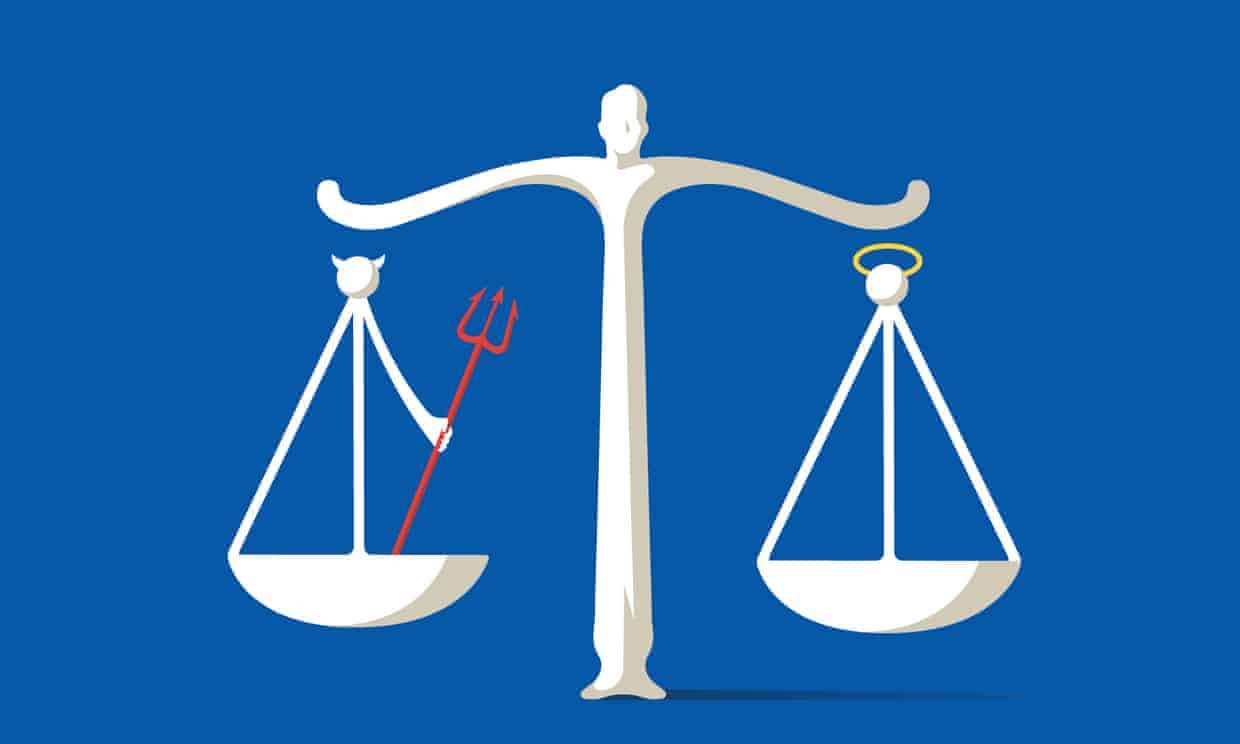The big idea: are we responsible for the things we do wrong?
Context is crucial, but does that really mean we can leave free will out of the picture?

The question of whether we are responsible for the harm we cause goes to the heart of who we think we are, and how we believe society should run. Guilt, blame, the existence of evil, and free will itself can complicate this question to the point of near absurdity. And yet, as absurd as it may be, it is unavoidable. Taking a binary approach, whichever path one chooses, can lead to difficulties very quickly. On the one hand, if we are solely responsible for the things we do wrong, some genuinely malevolent parties get off scot-free. On the other, if we locate responsibility entirely outside the individual, we relegate ourselves to sentient flotsam buffeted by currents beyond our control.
In my own medical career, I have seen attitudes shift considerably around the idea that individuals should take personal responsibility for the harm they do to themselves. Self-injurious behaviours such as alcoholism and drug addiction have rightly been reframed as diseases rather than lifestyle choices. In the case of opiate dependence, as the huge numbers of people hooked on prescription painkillers in the United States demonstrates, “bad” behaviour is often caused directly by doctors and pharmaceutical companies. But even with less dramatic examples, there is a growing acknowledgement that personal choice is not the biggest driving factor.
Over years as an inner city GP, I have met people whose apparent choices seem to be pushing them towards an early grave
While we all inherit a deck of cards shuffled at conception in terms of our genetic predispositions to illness or certain behaviours, it is context that can either engage the safety catch or pull the trigger. Social determinants of health, including income, physical environment, working conditions, housing and access to good food and healthcare account for up to 55% of health outcomes. They are the source of staggering disparities in life expectancy between the most and least deprived places. . .
[ ] It takes huge effort to change habits and to steer a life’s ship away from the path of least resistance. While on a population level, understanding the causes of bad choices is necessary – but not sufficient – to inform good policy, on an individual level it is perhaps better to avoid bringing it into the conversation.
Social labelling can be tremendously powerful, and toxic. It does not help people like my junk food fan to view themselves as victims. The opposite is true. Human dignity and hope require faith in free will, even if agency is at worst an illusion, and at best a partial explanation wreathed in caveats."
Further reading
Pathologies of Power: Health, Human Rights, and the New War on the Poor by Paul Farmer (University of California, £24)


No comments:
Post a Comment